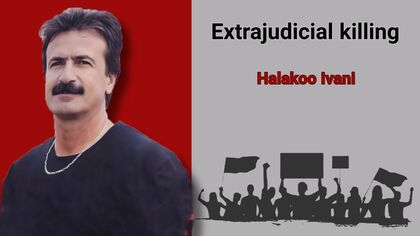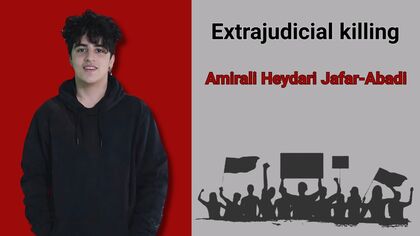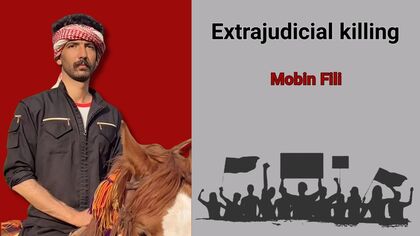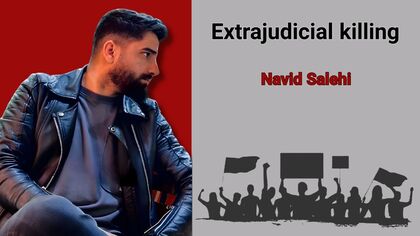Iran not keen to walk Turkey's red carpet
16:17 - 27 March 2012
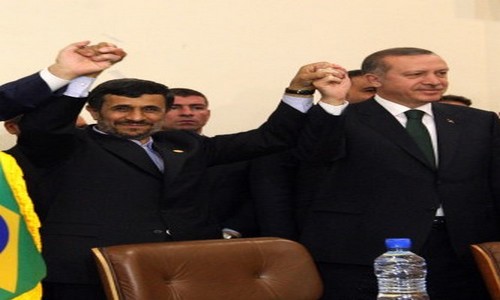
In a major setback for Turkey\'s self-promotion as a pivot of regional diplomacy, Tehran could rebuff Ankara\'s bid to hold the next round of multilateral nuclear talks in Istanbul. As a result, unless Ankara sends Tehran some reassuring signals, it is a sure bet that the talks will be held elsewhere.
Although no official announcement has been made, reports from Tehran indicate that compared to two years ago, when Iran trusted Turkey enough to consider inking an agreement with it, together with Brazil, that called for Turkey\'s safekeeping of Iran\'s enriched uranium, today a good deal of that trust has disappeared, replaced with a growing Iran disquiet about Turkey\'s
Nuclear talks between Iran and the \"Iran Six\" (the five permanent members of the United Nations Security Council - the United States, Great Britain, China, Russia and France - plus Germany) are due to take place in April. Yet, as of this writing, no final decision on the venue has been announced, despite intense efforts by the Turkish Foreign Ministry to secure Istanbul. The perceived excesses of Turkish Foreign Minister Ahmet Davutoglu, who has boldly stated that the \"military option\" on Syria is now on the table, have moved Tehran in the opposite direction.
\"The neo-Ottomanist Davutoglu has crossed the line with his hawkish line against Syria, which simply means that Turkey is acting as a NATO pawn in the Middle East, and therefore he should not be rewarded by hosting the Iran negotiations in Istanbul,\" says a Tehran University political science professor who prefers to remain anonymous.
After hosting five rounds of anti-Damascus summits of Syrian opposition groups and repeatedly stating that Turkey regards the situation in Syria as tantamount to an \"internal problem\", Turkey has created a new image problem for itself, ie, being seen as in bed with reactionary Arab regimes such as Saudi Arabia and other oil sheikdoms which are American client states and now want to add Syria to the list.
But this is unlikely to happen, or happen easily, in part because two important regional players, Russia and Iran, are united in preventing a tectonic shift in regional balance favoring the Western hegemonic powers; both Moscow and Tehran have denounced Turkey\'s embrace of a NATO anti-missile radar that poses a national security risk to both countries. Yet these countries are supposed to have \"zero problems\" with Turkey in terms of Davutoglu\'s foreign policy doctrine. (See Misstep in Turkey\'s neighborly ties Asia Times Online, October 12, 2011).
According to the Tehran professor, \"Turkey\'s problems with its neighbors, including Iraq, are piling up fast and that means zero success for its doctrine of \'zero problems\'\". With Prime Minister Recep Tayyip Erdogan under cancer treatment, Davutoglu and his pro-NATO foreign policy team may be enjoying a greater hand in devising policy, which may be an unfortunate development backfiring on Turkey in the near future.
Despite its growing suspicion of Turkey\'s regional intentions, Iran\'s policymakers and pundits are not yet ready to forego the possibility of \"win-win\" relations with Ankara, in light of burgeoning Iran-Turkey trade and energy connections that are expected to grow in the coming years.
Turkey has requested a waiver from the Western energy sanctions on Iran, as have several European nations, and with or without a role in the nuclear talks, it has a vested interest in maintaining the present trend of economic ties with Iran.
Nor can Turkey use the potential leverage of signaling its willingness to allow an Israeli strike on Iran via its airspace - such a move would be very badly received by Turkish Muslim public opinion and would spell doom for Davutoglu and others in the government if they ever consented to such a scenario. (See The myth of an Israeli strike on Iran Asia Times Online, April 7, 2005.)
An equally important factor militating against holding the nuclear talks in Istanbul is that compared to early last year, when Iran was still entertaining the terms of the \"Tehran declaration\" that stipulated that Iran would ship out a bulk of its stored uranium to Turkey for the sake of a fuel swap, today the feeling in Iran is that the declaration is moot in light of Iran\'s nuclear advances in manufacturing 20% enriched uranium, as well as uranium metal.
Instead of focusing on a fuel swap, Iran\'s focus now for the coming nuclear talks is to put a brake on the many sanctions on Iran, which is why Tehran may opt for Vienna or Brussels, the headquarters of both European politics as well as Swift, the giant financial clearing house that recently cut off Iranian banks.
What gives Iran a modicum of hope for a successful \"rollback\" strategy is (a) an open division in the ranks of the European Union over Iran, (b) the EU\'s decision to back away from banning European insurance companies from dealing with Iranian oil shipments, and (c) the growing number of European countries seeking a waiver from the Iran oil embargo.
The latter has clearly put a huge dent in the recent EU decision to halt all Iranian oil imports by July, reflecting the internal fissures that are based on pure energy needs - particularly for countries such as Italy, Spain and Greece, the three largest Iran oil importers.
As for Vienna, the headquarters for the UN\'s International Atomic Energy Agency (IAEA), the benefit of holding the nuclear talks there for Iran consist of the fact that Iran\'s cooperation with the IAEA is increasing and there are hopeful signs of the IAEA backtracking from some of its recent unsubstantiated statements regarding Iran\'s nuclear program.
Regarding the latter, IAEA head Yukiya Amano has come under new fire in the form of an article in London\'s Guardian newspaper casting serious doubt on his neutrality, depicting him as unduly pro-American. With both the IAEA leadership and the EU\'s foreign policy machinery on the defensive to some extent, Iran\'s diplomatic chips are increasing, which may not be the case if the talks were held in Istanbul, under a cloud over the Syria controversy.
Source – www.atimes.com
Although no official announcement has been made, reports from Tehran indicate that compared to two years ago, when Iran trusted Turkey enough to consider inking an agreement with it, together with Brazil, that called for Turkey\'s safekeeping of Iran\'s enriched uranium, today a good deal of that trust has disappeared, replaced with a growing Iran disquiet about Turkey\'s
Nuclear talks between Iran and the \"Iran Six\" (the five permanent members of the United Nations Security Council - the United States, Great Britain, China, Russia and France - plus Germany) are due to take place in April. Yet, as of this writing, no final decision on the venue has been announced, despite intense efforts by the Turkish Foreign Ministry to secure Istanbul. The perceived excesses of Turkish Foreign Minister Ahmet Davutoglu, who has boldly stated that the \"military option\" on Syria is now on the table, have moved Tehran in the opposite direction.
\"The neo-Ottomanist Davutoglu has crossed the line with his hawkish line against Syria, which simply means that Turkey is acting as a NATO pawn in the Middle East, and therefore he should not be rewarded by hosting the Iran negotiations in Istanbul,\" says a Tehran University political science professor who prefers to remain anonymous.
After hosting five rounds of anti-Damascus summits of Syrian opposition groups and repeatedly stating that Turkey regards the situation in Syria as tantamount to an \"internal problem\", Turkey has created a new image problem for itself, ie, being seen as in bed with reactionary Arab regimes such as Saudi Arabia and other oil sheikdoms which are American client states and now want to add Syria to the list.
But this is unlikely to happen, or happen easily, in part because two important regional players, Russia and Iran, are united in preventing a tectonic shift in regional balance favoring the Western hegemonic powers; both Moscow and Tehran have denounced Turkey\'s embrace of a NATO anti-missile radar that poses a national security risk to both countries. Yet these countries are supposed to have \"zero problems\" with Turkey in terms of Davutoglu\'s foreign policy doctrine. (See Misstep in Turkey\'s neighborly ties Asia Times Online, October 12, 2011).
According to the Tehran professor, \"Turkey\'s problems with its neighbors, including Iraq, are piling up fast and that means zero success for its doctrine of \'zero problems\'\". With Prime Minister Recep Tayyip Erdogan under cancer treatment, Davutoglu and his pro-NATO foreign policy team may be enjoying a greater hand in devising policy, which may be an unfortunate development backfiring on Turkey in the near future.
Despite its growing suspicion of Turkey\'s regional intentions, Iran\'s policymakers and pundits are not yet ready to forego the possibility of \"win-win\" relations with Ankara, in light of burgeoning Iran-Turkey trade and energy connections that are expected to grow in the coming years.
Turkey has requested a waiver from the Western energy sanctions on Iran, as have several European nations, and with or without a role in the nuclear talks, it has a vested interest in maintaining the present trend of economic ties with Iran.
Nor can Turkey use the potential leverage of signaling its willingness to allow an Israeli strike on Iran via its airspace - such a move would be very badly received by Turkish Muslim public opinion and would spell doom for Davutoglu and others in the government if they ever consented to such a scenario. (See The myth of an Israeli strike on Iran Asia Times Online, April 7, 2005.)
An equally important factor militating against holding the nuclear talks in Istanbul is that compared to early last year, when Iran was still entertaining the terms of the \"Tehran declaration\" that stipulated that Iran would ship out a bulk of its stored uranium to Turkey for the sake of a fuel swap, today the feeling in Iran is that the declaration is moot in light of Iran\'s nuclear advances in manufacturing 20% enriched uranium, as well as uranium metal.
Instead of focusing on a fuel swap, Iran\'s focus now for the coming nuclear talks is to put a brake on the many sanctions on Iran, which is why Tehran may opt for Vienna or Brussels, the headquarters of both European politics as well as Swift, the giant financial clearing house that recently cut off Iranian banks.
What gives Iran a modicum of hope for a successful \"rollback\" strategy is (a) an open division in the ranks of the European Union over Iran, (b) the EU\'s decision to back away from banning European insurance companies from dealing with Iranian oil shipments, and (c) the growing number of European countries seeking a waiver from the Iran oil embargo.
The latter has clearly put a huge dent in the recent EU decision to halt all Iranian oil imports by July, reflecting the internal fissures that are based on pure energy needs - particularly for countries such as Italy, Spain and Greece, the three largest Iran oil importers.
As for Vienna, the headquarters for the UN\'s International Atomic Energy Agency (IAEA), the benefit of holding the nuclear talks there for Iran consist of the fact that Iran\'s cooperation with the IAEA is increasing and there are hopeful signs of the IAEA backtracking from some of its recent unsubstantiated statements regarding Iran\'s nuclear program.
Regarding the latter, IAEA head Yukiya Amano has come under new fire in the form of an article in London\'s Guardian newspaper casting serious doubt on his neutrality, depicting him as unduly pro-American. With both the IAEA leadership and the EU\'s foreign policy machinery on the defensive to some extent, Iran\'s diplomatic chips are increasing, which may not be the case if the talks were held in Istanbul, under a cloud over the Syria controversy.
Source – www.atimes.com
